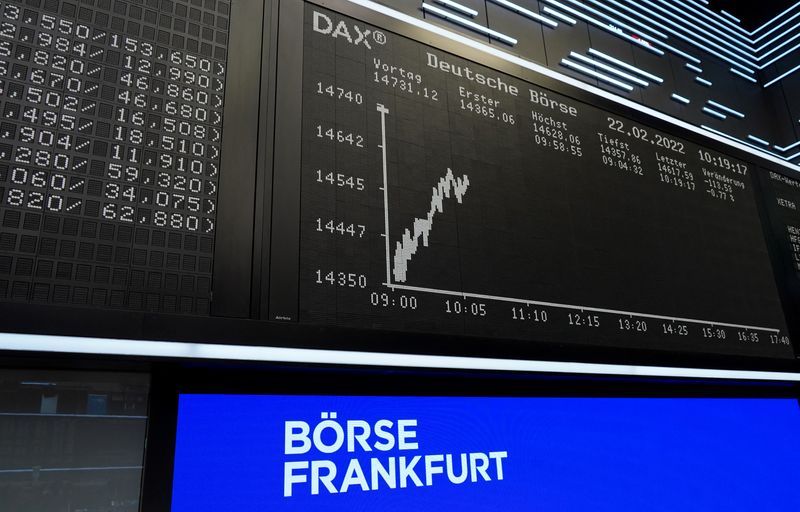By Peter Nurse
Investing.com - European stock markets soared Tuesday, boosted by news of falling German inflation, raising hopes that the European Central Bank could relent from its tightening stance earlier than expected.
At 04:30 ET (09:30 GMT), the DAX index in Germany traded 1.4% higher, the CAC 40 in France traded up 1.4%, and the FTSE 100 in the U.K. climbed 2.1%, in its first trading day of the new year.
The state of North Rhine-Westphalia - Germany's largest by population and economic output - said annual inflation slowed to 8.7% in December from 10.4% in November and a peak of 11% in October, as rebates on household fuel bills caused a 12.6% drop in energy prices during the month, which pushed the overall consumer price index down by 1.0% from November.
This has been seen as good news, potentially opening the way to the European Central Bank pausing its aggressive monetary tightening sooner than originally expected.
That said, overall CPI without volatile food and energy prices still rose 1.0%, pushing the annual 'core' measure of inflation up to 4.9% from 4.6%.
Also helping the tone was the German unemployment news, with the country’s unemployment rate falling to 5.5% in December, from 5.6% the previous month.
Investors had been focusing on the contradictory implications of China's opening up and a resurgence in COVID-19 cases, and the potential impact on Europe given the importance of this export market to some of the region’s biggest companies.
Data from a private survey, released earlier Tuesday, confirmed Chinese manufacturing activity shrank for a fifth straight month in December, with the Caixin Manufacturing Purchasing Managers Index coming in at 49.0.
This represents a drop from last month’s reading of 49.4, and the fifth straight month that the manufacturing PMI has spent in contraction territory.
IMF Managing Director Kristalina Georgieva said on Sunday that the United States, Europe and China - the main engines of global growth - were all slowing simultaneously, making 2023 tougher than 2022 for the global economy.
Oil prices edged higher Tuesday, trading near their highest levels in a month despite the weak factory data from China, the world's largest crude importer and second-largest oil consumer.
Traders appeared to be taking a more optimistic view on the longer-run prospects for the world's second-largest economy after the worst of the COVID waves had passed.
By 04:30 ET, U.S. crude futures traded 0.5% higher at $80.69 a barrel, while the Brent contract rose 0.4% to $86.27.
Additionally, gold futures rose 1.1% to $1,846.95/oz, while EUR/USD traded 1.1% lower at 1.0550.
